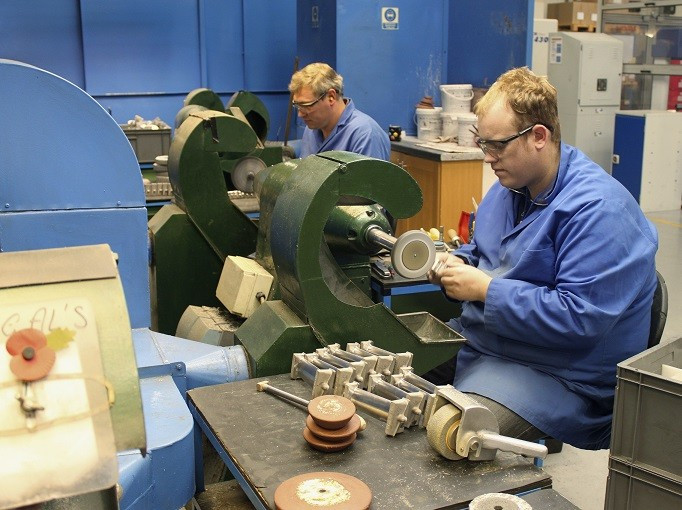EU Referendum: Manufacturers Tell David Cameron to Protect UK's Membership

British manufacturers have weighed in to the EU debate by backing the "in" camp ahead of a planned referendum in 2017.
According to a survey by EEF, the UK's leading trade body for manufacturers, 85% of those from the industry polled said they want the country to retain its membership of the EU.
It follows other significant interventions from the business and finance worlds, including from the British Chambers of Commerce (BCC) and Goldman Sachs International, which have also overwhelmingly backed the UK's continued membership of the EU.
Prime Minister David Cameron, who is in favour of the UK staying within the EU on renegotiated terms, said there will be an in/out referendum if he is re-elected in the 2015 general election. The move is to appease the vociferous eurosceptic lobby on the backbenches of his own Conservative party which had been growing restless over his leadership.
"Britain must not gamble on its future in Europe. The stakes are enormous," said Terry Scuoler, chief executive of EEF.
"It is naïve to think we can simply pull up the drawbridge and carry on as normal. The debate must move on to how we can make Europe work to support jobs, growth and higher living standards.
"We need to focus on the real prize - how we can get Europe to work better supporting companies that are looking to sell into the EU, to export to new markets in the rest of the world and develop new products and services."
Scuoler added that the UK "must be at the centre of the change we want to see in Europe".
"Billions of pounds of trading opportunities are at stake and we must keep the focus - and the wider debate - on these opportunities which will unleash growth in our economy now and in the longer term," he said.
The EU's critics accuse it of being too bureaucratic, undemocratic and unaccountable. They say it erodes national sovereignty and urge the UK to go it alone, negotiating its own trade agreements.
Those pressing the case for staying in say it gives them free access to an enormous market and, as a trading bloc, more weight in international trade agreements with the likes of the US and China.
BCC
BCC's EU Business Barometer, which surveyed 3,906 British businesses, found that 77% back a referendum.
However, most back the UK to remain in the EU, with 61.4% saying renegotiated continued membership would be the most positive outcome for them.
"These results show that British businesses remain determined to see a recalibrated relationship between the UK and the rest of the European Union, with more powers exercised from Westminster rather than Brussels," said John Longworth, Director General of the BCC.
"Our quarterly survey shows that businesses reject both the Europhile dream of further integration and the Europhobe dream of a complete exit from the EU, provided a satisfactory renegotiation is achieved.
"For the quiet majority of companies, the status quo is not an option. Ministers must pursue reform and renegotiation as a priority."
The 500 million citizen EU, which has 28 member states, accounts for around half of all the UK's trade.
Goldman Sachs Warning
Two Goldman Sachs bosses have warned that the City of London's many financial firms would flee the UK if it were to quit its membership of the European Union after a proposed referendum which could take place in 2017.
Michael Sherwood and Richard Gnodde, co-chief executives of investment banking behemoth Goldman Sachs International, told the Evening Standard that their institution would sweep staff away from London and into a rival European city to maintain their access to the lucrative single market.
"We are going to be part of that economy. There is no scenario under which we will not be participating," said Sherwood. "The only question is: do we do it all from here?"
He added: "Every European firm would be gone in very short order."
Gnodde said Goldman Sachs would always want to have a European business to service clients in the region, but it would have to operate two separate businesses if the UK pulled out of the EU: one for its UK clients, the other for those on the continent.
"There was a City before the EU was ever thought of. In or out, there will be a City for the next 100 years. The question is: what kind of City will it be?" Gnodde said.
© Copyright IBTimes 2025. All rights reserved.






















